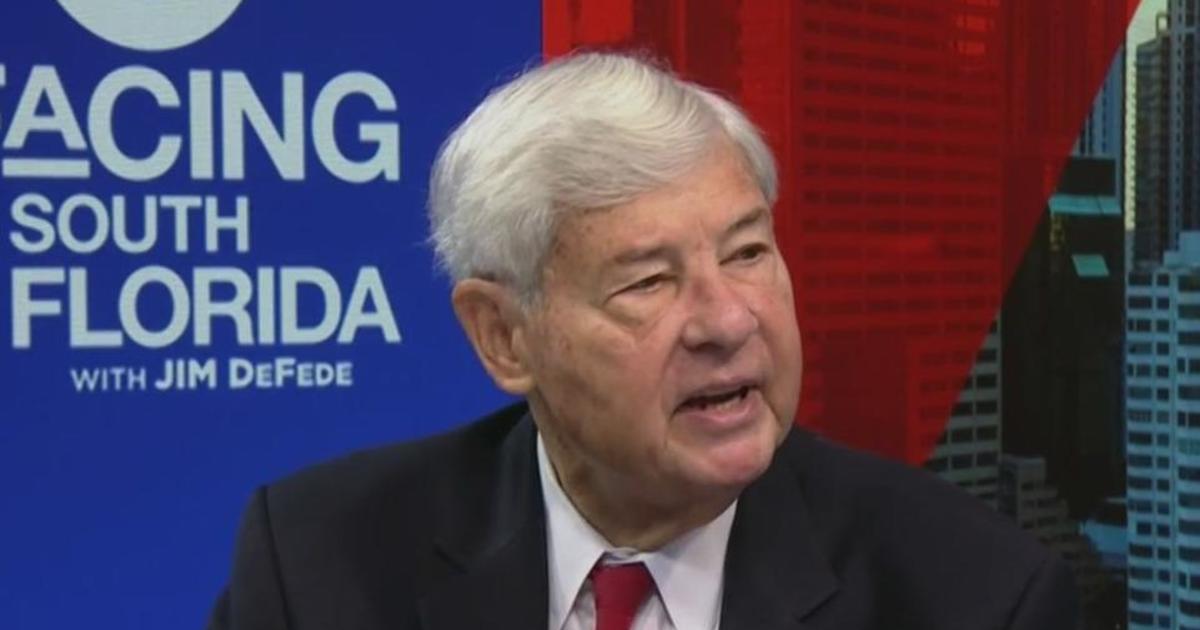Researchers Find WhatsApp Disinformation Campaigns Targeting Hispanic Voters In South Florida
MIAMI (CBSMiami) – Disinformation campaigns can be very powerful in swaying or intimidating voters.
Sometimes those campaigns stem from foreign countries like Russia. In other cases, they can come from inside the United States.
Recent investigations uncovered documents alleging the Trump campaign targeted Black voters. Not to persuade them to vote for Trump, but to keep them from voting for Hillary Clinton. It was part of a program called "Deterrence."
In 2020, the disinformation campaigns have taken a new approach.
There's been a rise in its use in Spanish language media, particularly social media, targeting Hispanic voters.
In recent days, messages on WhatsApp have threatened Trump voters, prompting Sen. Marco Rubio to issue this Tweet:
WhatsApp has become a real cesspool for false and misleading information, especially in stoking fears about Democrats and Joe Biden, and South Florida is considered a disinformation hotspot.
Randy Pestana, a researcher at the Institute of Public Policy at Florida International University, said what makes 2020 disinformation campaigns different and dangerous is how it spreads.
"If you notice what's going on with the disinformation spreading, particularly through WhatsApp groups, it's unique because you don't actually have to target within the United States. You don't have to target a Colombian in Miami. You can target a Colombian member's family in Bogota and that message will spread throughout the community that way, right," he told Facing South Florida host Jim DeFede. "So you're seeing a lot of legitimate things, also uniquely endorsing a candidate and promoting a certain narrative to communities to, in a sense, interfere with this year's election. This is not something you saw in 2016, outside of the prominent Russia case that we know, but it wasn't done in Spanish media."
Jacob Gursky, a researcher at the University of Texas at Austin, added that those spreading disinformation have been "sharpening their knives" in terms of strategy.
"Yeah, well, they're conspiracy theories. And there are things that are specific to the language that can take advantage of those cultural lines. And another thing is sort of this edging of groups where a group starts out with one purpose and slowly becomes political, which is actually a trend that also happens in private Facebook groups or public Facebook groups," Gursky said. "Coronavirus for instance. People going online to find out information about coronavirus, and then suddenly being led into a political discussion."
More from CBSMiami.com
Tua Tagovailoa Connects With DeVante Parker For 1st Career Touchdown
Miami-Dade State Attorney Calls For Audit After Undelivered Ballots Found Inside Post Office
DEA Docs Reveal Elaborate Undercover Drug Sting That Nabbed Police Officers
Pestana said what's happening is definitely dangerous because it "actually has the ability to change votes."
He pointed to attacks that force people to pick a side on a topic.
"What's being shown within these WhatsApp groups is false equivalencies. You cannot be for the police and for Black Lives Matter. You have to take aside. You cannot be a Democrat and a Catholic at the same time. And these, we all know, this is a false equivalency," Pestana said. "This idea that every Democrat is now socialist, and that's the message is being portrayed within these WhatsApp groups. We know it to be false. But in these communities that's actually lived through socialism, like in Cuba and Venezuela and Nicaragua, it has a personal effect on how you and your family will vote in in a state like Florida."
Gursky added that there "certain strains of disinformation that are just the goal is only to get retweeted by the President or prominent figures" to take off.



